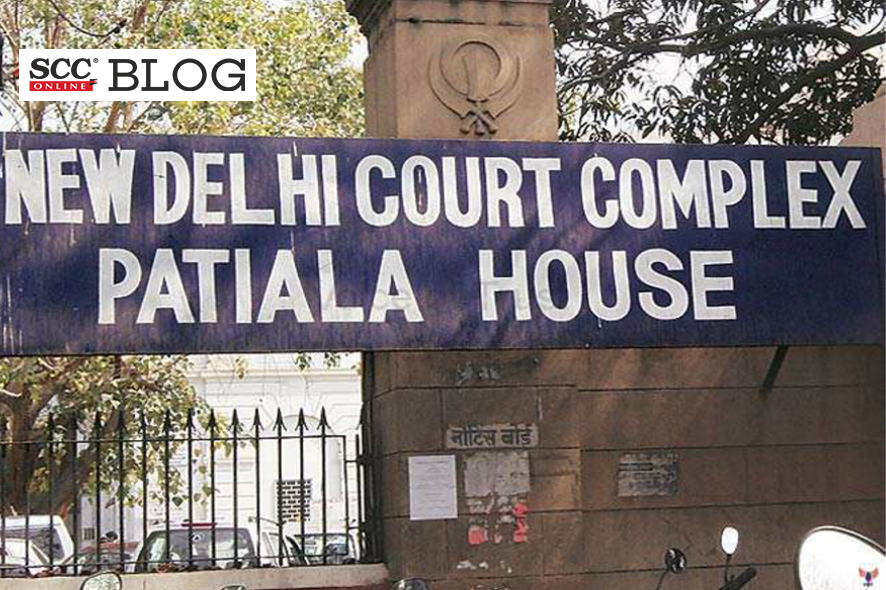Patiala House, New Delhi: In a suit instituted for recovery of Rs. 1,52,77,020/- along with interest and mandatory injunction against the tenant, Vineeta Goyal, J. reiterated that a landlord cannot refuse to accept possession of the suit property on the ground that property has been damaged. Further, the suit of the landlord is partly decreed, and he is entitled to arrears of rent for the period April 2020 to October 2020 at Rs. 6 lakhs per month and applicable GST at 18% after deduction of TDS as per prescribed provisions. The amount so becoming due would be adjusted against the security deposit of Rs. 31,50,000/- and the balance amount shall be paid by the tenant including interest at 12% from the date of filing of suit till its realisation.
Background:
In the case at hand, the plaintiffs (landlords) are the owners and were sufficiently entitled to commercial land and independent building situated thereon. The suit property was let out by the plaintiffs to the defendant (tenant) for a period of 09 years by virtue of registered lease deed with a monthly rent of Rs. 10,50,000/- with enhancement at the rate of 18% per annum after every 3 years. It is the claim of the tenant that he has expressed his desire to vacate the suit property by giving termination notice indicating the tentative date for handing over possession of the suit property. The tenant claimed that after vacating the suit property, it had sent pictures of vacant suit property over WhatsApp to the landlord, but he took no steps to take the possession of the suit property. The objection of the landlord was that the suit property was damaged, some goods were lying in basement and outstanding arrears of rent were not paid.
Analysis:
Whether the tenant has the right to foreclose the lease deed expiry of its term and if such termination of tenancy was justified?
The Court took note of clause 5.1 of the lease agreement. If the tenant intends to terminate the lease, it can do so by giving three months’ notice in writing to the landlord.
The Court said that it is evident from the agreement between the parties that there was clear communication about termination of tenancy of the suit property and the only disagreement was regarding the effective date either being 06-10-2020 or 31-10-2020.
Whether the tenant had given termination notice to the landlord and timely vacated the premises and had offered to give the keys of the vacated premises to the landlord which the landlord refused to accept?
Considering the obligation of the tenant to hand over the vacant possession of the suit property on the determined date, the Court referred to Section 108 of the Transfer of Property Act, 1882 (TPA) which provides Rights and duties of lessor and lessee. It said that the landlord was duty bound to keep the suit property in good condition and on determination of the lease bound to put the tenant into possession of the property. Further, the Court reiterated that the landlord cannot refuse to take over the possession of the suit property upon determination of lease on the ground that the property has been damaged or not restored to its original position.
Placing reliance on H.S. Bedi v. National Highway Authority of India, 2015 SCC OnLine Del 9524, the Court reiterated that in the event of refusal of landlord to take possession offered by the tenant, the possession shall be deemed to have been delivered to the landlord and the tenant shall not be liable to pay the rent thereafter.
The Court said that it is evident that the landlord continued to contend that unless arrears of rent are paid, repairs are done and utility bills are paid, the possession cannot be taken.
The Court noted that the landlord was offered the possession of the suit property which was refused by him on the pretext of damage to the suit property whereas no evidence has been adduced by him about damage to the suit property except his bald statements.
The Court said that tenant’s lease determined in the month of October 2020 when he offered the possession to the landlord, who deliberately chose not to take the possession, therefore:
-
The possession of the suit property is deemed to have been delivered to the landlord who is not entitled to the rent thereafter.
-
The landlord by not coming forward to take unconditional possession from the tenant cannot make it actionable for recovery of rent for the period after vacation of the suit property by the tenant.
Whether the landlord is entitled to recovery of a sum of Rs. 1,52,77,020/- as prayed for? and whether the landlord is entitled to equitable relief of mandatory injunction directing the defendant to pay Rs. 6 lakhs + GST to the landlord per month on account of rent as prayed for?
This issue was decided partly in favour of the landlord. The Court held that the landlord is entitled to rent for the period April 2020 to October 2020 (07 months) at Rs. 6 lakhs per month and applicable GST at 18% after deduction of TDS as per prescribed provision.
Whether the landlord is entitled to interest, if so, at what rate and for which period?
The Court held that the period would be from the date of filing of the suit till its realisation and it would be just if the rate of interest is 12% per annum.
[Ameet Bhatia v Devyani International Ltd., 2023 SCC OnLine Dis Crt (Del) 10, decided on 09-06-2023]
Advocates who appeared in this case :
Counsel for the Plaintiffs: Senior Advocate Pawanjit S. Bindra, Advocate Vinayak Marwah;
Counsel for the defendant: Advocate Bharat Chugh, Advocate Mayank Arora, Aditya Narayan Choudhary, Advocate Ashray Chopra.







